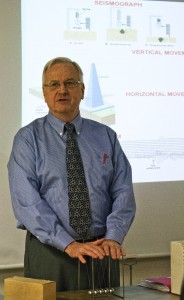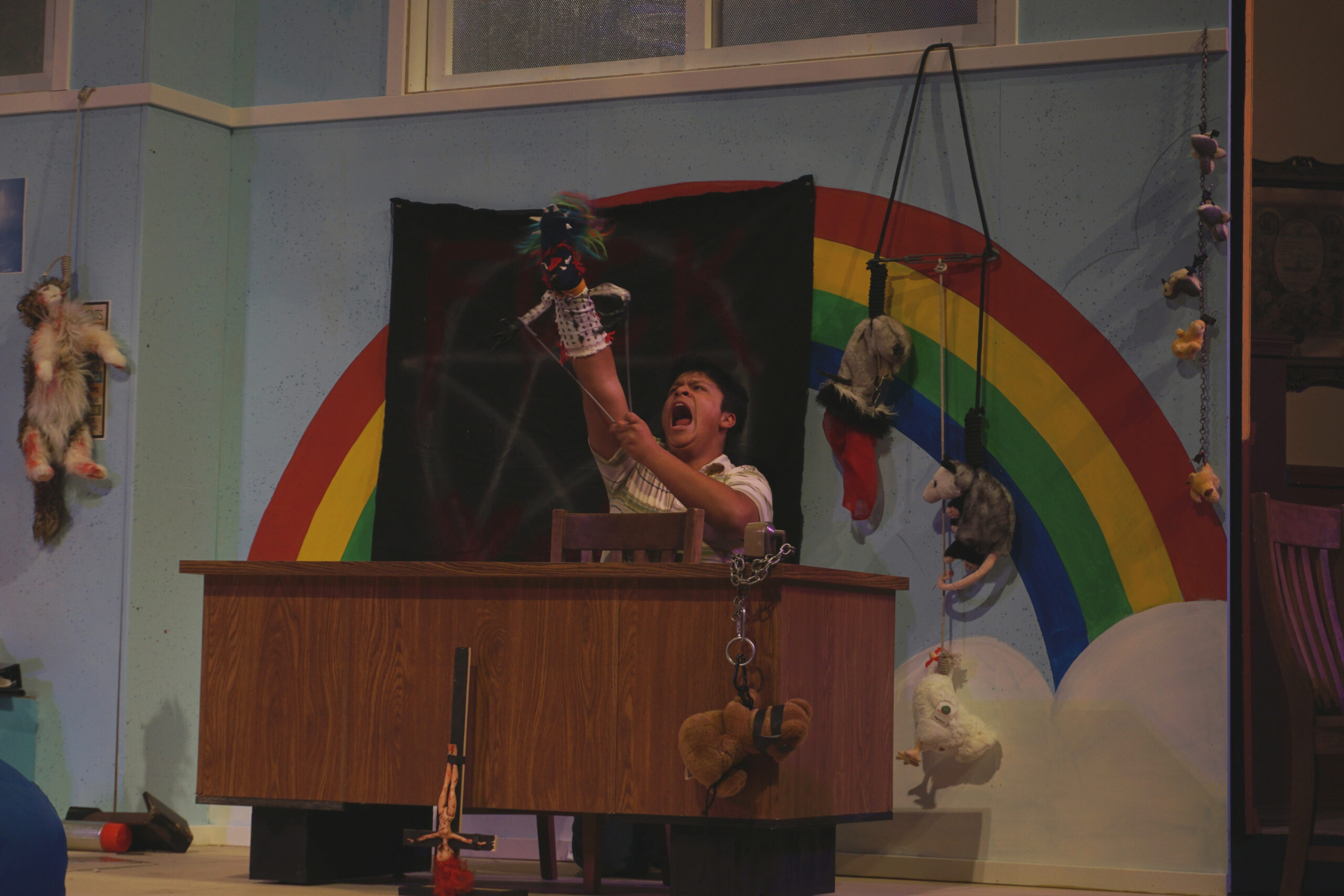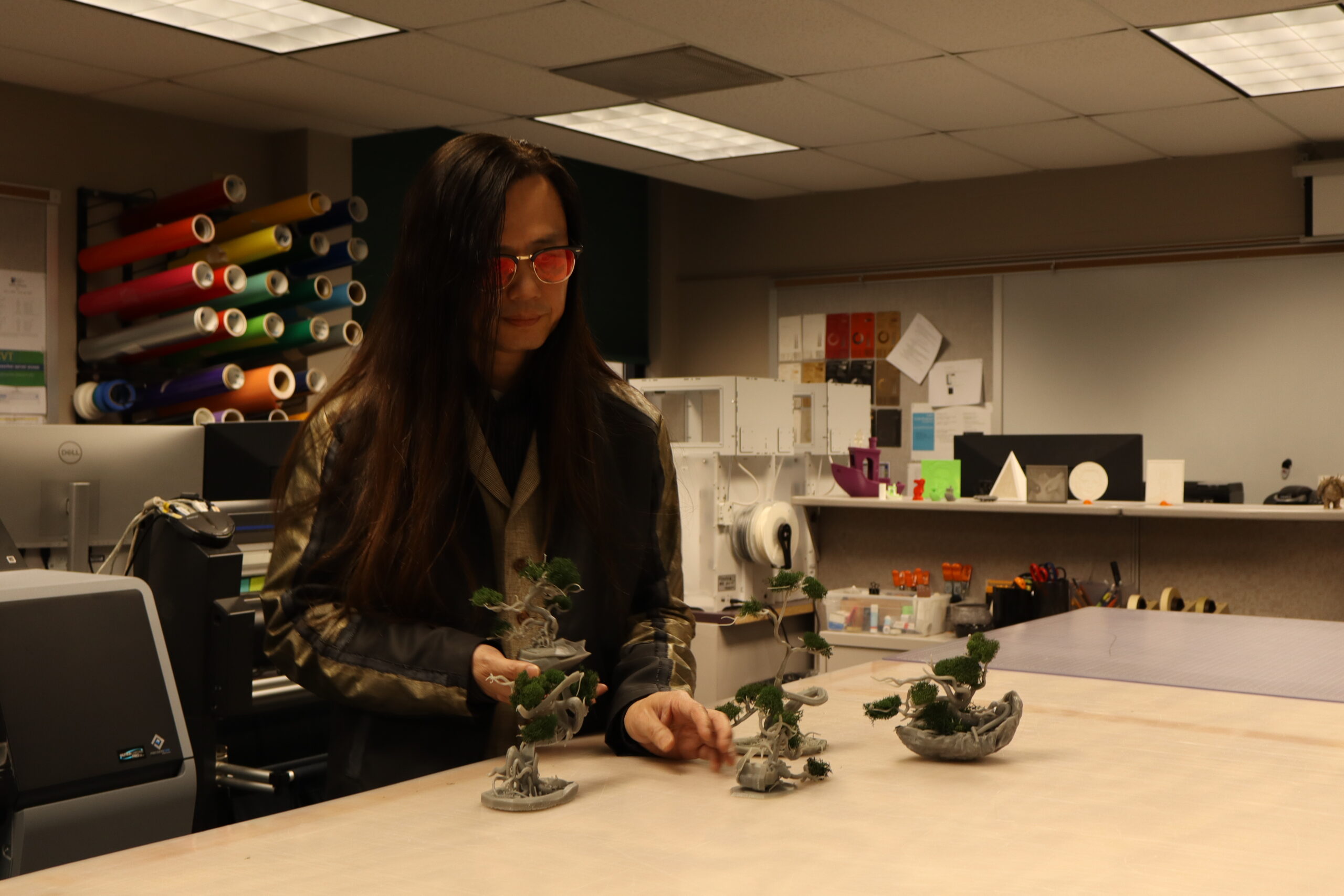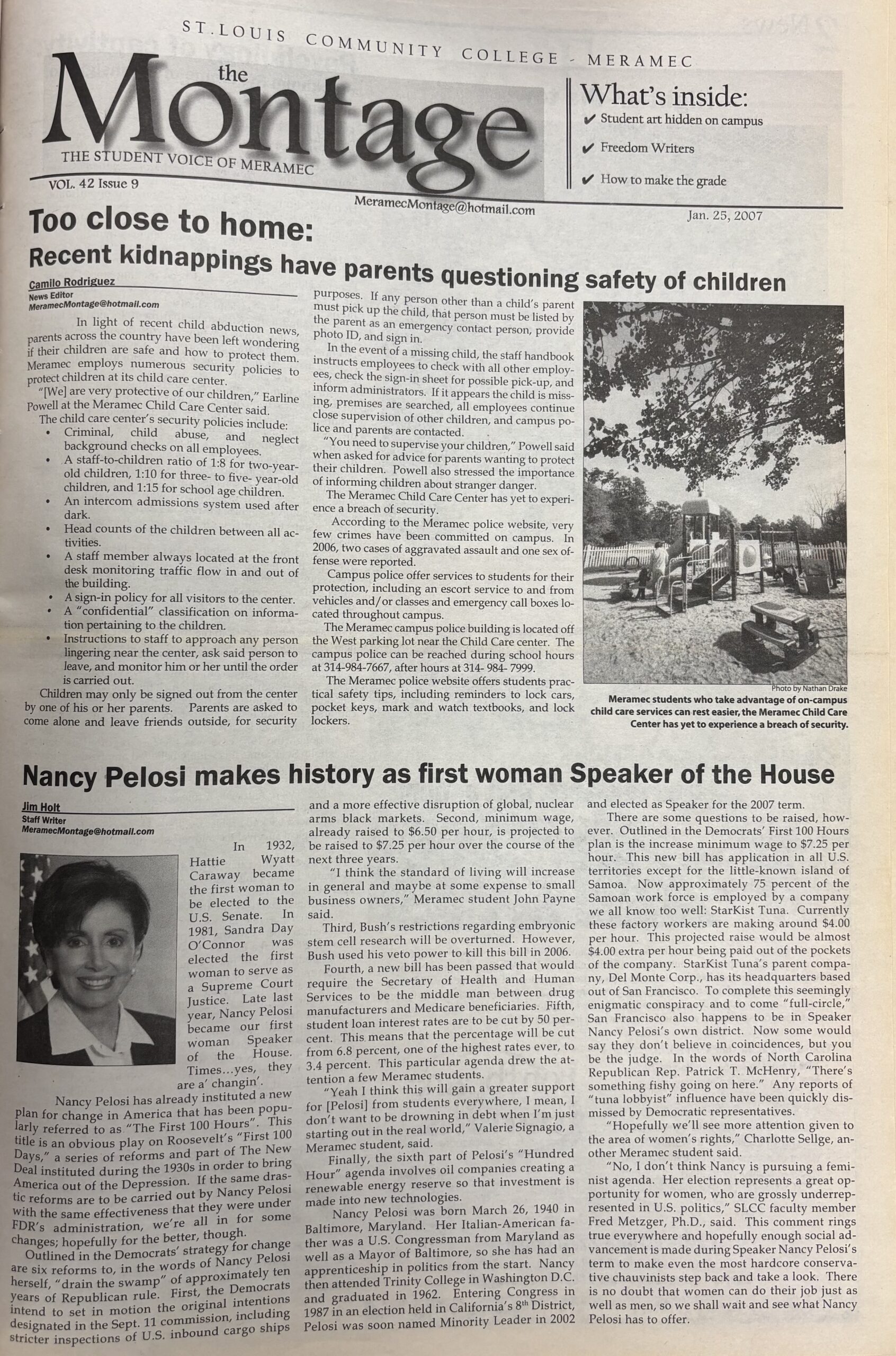Geology teacher talks about his love for science and teaching science

Kimberly Morice
-Sr. Staff Writer-
A tall man stands before a classroom full of geology students, his smiling face looking out at his students as he fiddles with his dinosaur necktie. STLCC–Meramec Professor Carl Campbell pushes his thinly-framed glasses up his nose as they slide down while talking about rocks and minerals.
Campbell did not always plan on becoming a professor.
“When I went to school, originally I wanted to be a doctor–that’s not true, when I was very young, I wanted to be a geologist. My grandfather convinced me that there wouldn’t be a need for geologists, I’d be out of work and we’d run out of oil. I thought my grandfather knew everything, so I thought since I love science and biology, I’d become a doctor,” Campbell said.
While attending Indiana University, Campbell found himself struggling through organic chemistry.
“You know that if you’re going into medicine, you have to take organic chemistry early on,” Campbell said. “That’s the course where they weed out the weak sisters, those that can’t cut it. When I got into organic chemistry in my junior year, I was clueless; I had no idea what was going on.”
In a time of student revolutions, Campbell found himself lost in the chemistry lab with his lab partner, who is now a professor at Washington University. During a lab, Campbell and his lab partner accidentally blew the lab up, which caused the National Guard to be called in, according to Campbell.
“It was an accident, but we still got an A in lab,” Campbell said. “But I was failing the lecture.”
At the time that Campbell was struggling through organic chemistry, he was taking two geology courses “just for the fun of it and I loved it,” Campbell said. After much thought, Campbell decided to switch his major to geology and his lab partner followed his lead. “I never looked back,” Campbell said.
Campbell became the president of an oil company for many years. Eventually, after the company went through a hostile takeover and he lost his job, Campbell put together a leveraged buyout and bought back his family business, which made bug spray and insecticide. Struggling to compete against big-name companies, Campbell began teaching geology courses at Meramec as an adjunct professor. He sold his family company after being hired as a full-time professor in fall 2005.
“I really enjoy the students, they’re so much fun,” Campbell said. “For me, they’re like blank slates when they come in. They’re taking my course just to get their science out of the way; most of them are at least. It’s really fun to watch them learn about the physical world and how we got here.”
Since Campbell was hired as a full-time professor, he has shared an office with Chemistry Professor Michael Hauser. Throughout the years, Hauser has witnessed Campbell’s interactions with his students.
“What’s funny about [Campbell], he brings the most life experience to his teaching of anybody I’ve known,” Hauser said. “He’s really passionate about what he does; he really likes this stuff and I think the students pick up on that too.”
Chair of the Physical Sciences department Nancy Collier, has known Campbell since he began working at Meramec. Collier, like Hauser, said she admires how Campbell interacts with his students and the subject he teaches.
“He loves teaching and he is 100-percent devoted to his students,” Collier said. “Not only does he love students, but he’s willing to give his knowledge to people. I think that makes him stand out. He’s not stingy with it at all; he just gives it away as much as he possibly can.”
Campbell takes his love of geology out into the field during the summers, spending the majority of his time in Montana and southeastern Missouri working with professors from other colleges across the nation. He plans to write a grant proposal for a three-year program to get students out into the field as well.
“I realized that this would be an outstanding opportunity for undergraduates to get into research,” Campbell said. “So I’m putting together a proposal for the National Science Foundation where we bring undergraduates up there in the summer to help with the research that we’re doing, and during the school semesters when we’re not in the field, they’ll do lab work and that sort of thing and be involved in writing papers and giving presentations as undergraduates.”
This proposal will act in addition to the field program Campbell has helped run for the last three years. Students cover 4,000 miles in two weeks, where they learn about how the Rocky Mountains formed, glacial geology, volcanology, erosion and they have the opportunity to look for dinosaur fossils.
“It’s limited to 13 students for the field course and it’s been really successful,” Campbell said. “They have a great time.”
Through the field course he runs and the classes he teaches, Campbell said he always hopes students take away a better understanding of the earth they live on.
“If they could just take back some basic information about their physical surroundings and an appreciation of the rocks when they drive through them or if they go out west to the mountains,” Campbell said. “Then they can answer their children’s questions about how the mountains formed.”
Campbell said that geology is a large part of his life, whether he is talking about it teaching it or studying it.
“I love geology. I really do, always have,” Campbell said. “It’s a great field. If anybody has an interest and can show an interest, I can always tell the ones who will make good scientists. They’re curious and skeptical at times, they’re good at math and data, have a bit of a memory. Geology is observational.”
Campbell smiles when he talks about his subject and the projects he is working on. He said that everything he is doing is going to eventually benefit his students, who always remain his first priority.
“Students seem to think my courses are tough, but I think they’re really easy. I sure have a good time in my classrooms. It’s fun, students are funny, they really are,” Campbell said. “If they’re not sure about what science courses they want to take, if they’re afraid of smelly and squishy things in biology, or afraid they might blow up the chemistry lab like I did, have them come take a geology course. They might like it.”












